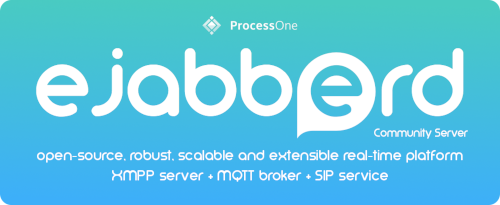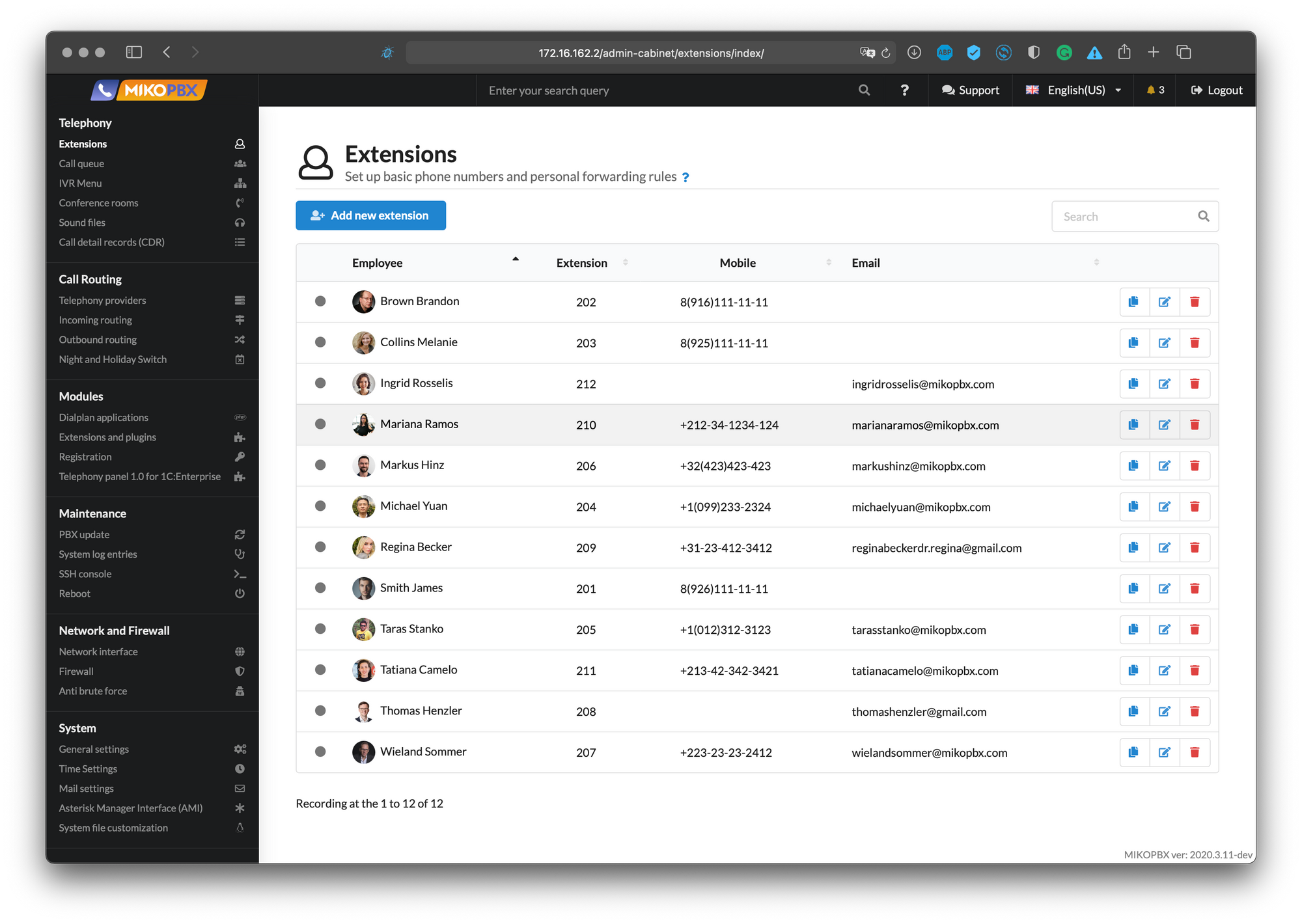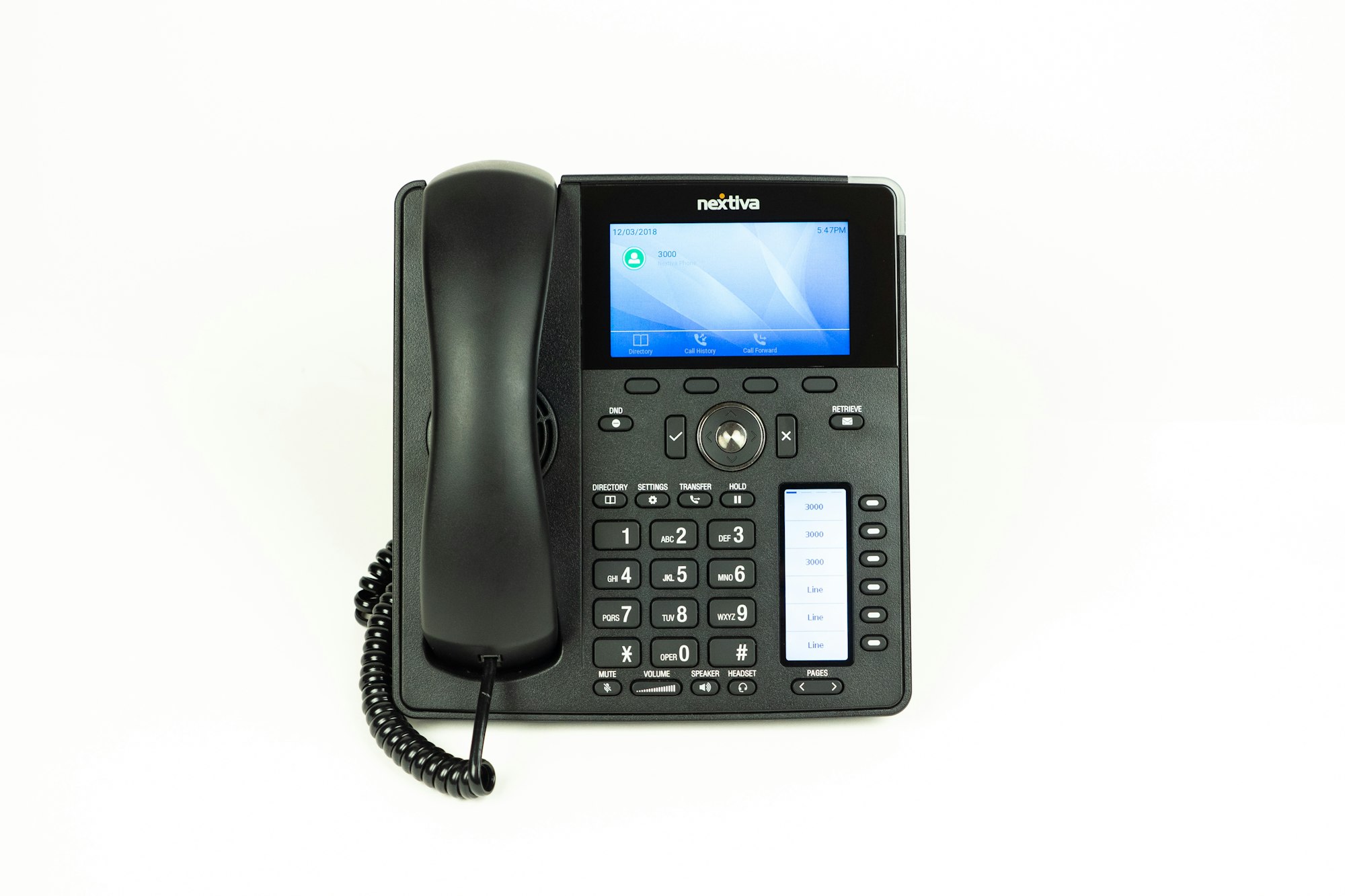22 Open-source Free and Open-source VoIP and Sip Servers
Table of Content
A VoIP (Voice over Internet Protocol) server is a computer system that enables voice communications over the internet. It converts analog audio signals into digital data packets and transmits them over the internet. SIP (Session Initiation Protocol) is a signaling protocol used for initiating, maintaining, and terminating real-time sessions that involve video, voice, messaging, and other communications applications and services between two or more endpoints on IP networks.
A SIP server, also known as a SIP proxy server or SIP registrar server, is a type of VoIP server that manages SIP sessions between two or more endpoints. It is responsible for initiating, maintaining, and terminating SIP sessions and handling SIP signaling between endpoints.
Use-cases of VoIP and SIP servers
There are many use-cases for VoIP and SIP servers, including:
1- Voice and Video Communication
One of the most common use-cases for VoIP and SIP servers is to enable voice and video communication over the internet. This can include everything from voice and video calls between individuals, to conferencing and collaboration tools for businesses.
2- Call Center Operations
VoIP and SIP servers can also be used to power call center operations. This can include everything from handling inbound and outbound calls, to providing advanced features like call routing, voicemail, and call recording.
3- Internet of Things (IoT) Devices
VoIP and SIP servers can also be used to power communications between Internet of Things (IoT) devices. This can include everything from smart home devices like thermostats and security cameras, to industrial automation systems and other IoT applications.
4- Unified Communications
Finally, VoIP and SIP servers can be used to power unified communications platforms, which bring together a variety of different communications tools and services into a single, integrated platform. This can include everything from voice and video calling, to messaging, collaboration tools, and more.
In this list we offer you the best open-source and free VoIP and SIP servers.
1- Kamailio
Kamailio is an open source SIP Signaling Server designed for large deployments, but can also be used for personal needs. It provides VoIP, Instant Messaging and Presence, and is known for its flexibility, robustness, security and extensive features.
2- ejabberd
ejabberd is a scalable, robust, and extensible open-source platform built using Erlang/OTP. It includes XMPP Server, MQTT Broker, and SIP Service. XMPP Server is a popular internet communication protocol for sending and receiving messages between networked devices.
MQTT Broker is a lightweight messaging protocol for IoT devices that provides an efficient and reliable way to manage them. SIP Service provides VoIP services to users. ejabberd is an ideal platform for developers who want to build real-time applications that require scalability, reliability, and security.
3- SipServer

ejabberd is an open-source platform that provides a plethora of features to its users. It is designed in a manner that makes it incredibly scalable, robust, and extensible. The platform is built using Erlang/OTP, and it includes XMPP Server, MQTT Broker, and SIP Service.
The XMPP Server is one of the most popular internet communication protocols that is used for sending and receiving messages between networked devices. On the other hand, the MQTT Broker is a lightweight messaging protocol that is used for IoT devices. It is designed to provide an efficient and reliable way to manage IoT devices. Lastly, the SIP Service is responsible for providing VoIP services to users.
With these features, ejabberd is an ideal platform for developers who want to build real-time applications that require a high level of scalability, reliability, and security.
4- gossip
Gossip is an open-source SIP stack in Golang is an ideal tool for stateful SIP UAs. It can be used for clients, servers, or proxies, and is written entirely in Go lang. The stack is designed to provide a high degree of reliability and flexibility, making it ideal for a wide range of applications.
In its current form, Gossip is now capable of conducting basic SIP 2.0 transactions over both UDP and TCP. This means that it can be used to facilitate communication between different devices and software applications. In order to ensure that it meets the needs of its users, Gossip has undergone live testing with real softphones. However, it is important to note that while Gossip is a powerful tool, it is still missing some compatibility features. Additionally, it hasn't been extensively tested, and there are a few known bugs that the development team is working on addressing to ensure that the tool is fully functional and reliable.
5- OpenSIPS
OpenSIPS is a powerful and flexible SIP server implementation that is available under the GNU General Public License (GPL). This means that it is open source and can be modified and distributed freely. It originated as a fork of the Fokus Fraunhofer SIP Express Router (SER) project, which was a leading SIP server implementation at the time.
However, OpenSIPS has expanded and improved upon the original project, offering a wide range of new features and functionalities that have made it a popular choice among developers and organizations alike. Some of these features include advanced routing capabilities, support for multiple transport protocols, and the ability to handle large call volumes.
Moreover, OpenSIPS is highly scalable, which means that it can be used in a variety of settings, from small businesses to large enterprises. With its robust and reliable architecture, OpenSIPS is a versatile and dependable choice for anyone looking to implement a SIP server.
6- Silent Server
Silent is a top-notch, ultra-lightweight voice chat that offers exceptional quality and low latency features to enhance your gaming experience. Whether you're a Windows or Linux user, you can take advantage of this amazing voice chat platform that's designed to provide seamless communication and a high level of convenience.
With its easy-to-use interface and advanced capabilities, Silent is a must-have tool for any gamer who wants to take their gaming experience to the next level.
7- Eqivo
Eqivo is a modern, dynamic and open-source communication platform developed using the Plivo framework, which is itself built on top of the powerful ReactPHP and FreeSWITCH technologies. Eqivo supports PHP 8.1+ and comes with a range of extension dependencies, many of which can be found in PHP's core. Eqivo is designed to provide businesses with a reliable and secure communication system that is easy to use, highly scalable and customizable to meet the specific needs of each organization.
With its cutting-edge features and flexible architecture, Eqivo is the ideal solution for companies looking to streamline their communication channels and improve their overall productivity. Whether you need to send messages, make calls, or manage your contacts, Eqivo has everything you need to take your communication game to the next level.
8- VoIP
This is a highly efficient and feature-rich VoIP server and client that is based on the Java programming language, which provides a robust and stable platform for real-time communication. Whether you want to chat with friends, family, or colleagues, this software offers a seamless and intuitive interface that makes it easy to stay connected.
9- Routr
Routr is a highly efficient and reliable SIP infrastructure that provides a lightweight sip proxy, location server, and registrar. It is designed to meet the needs of telephony carriers, communication service providers, and integrators who require a reliable and scalable SIP infrastructure.
The lightweight sip proxy ensures that calls are routed efficiently, while the location server enables the accurate tracking of devices. Additionally, the registrar helps to manage user registrations and authenticate users.
Routr is the ideal solution for those who require a reliable SIP infrastructure that can handle high volumes of traffic without compromising on quality.
Routr features include:
- Common SIP Server functions; Proxy, Registrar, Location Service
- Programmable routing
- Load balancing strategies against Media Servers like Asterisk and FreeSWITCH
- Session Affinity
- Multi-Tenant/Multi-Domain with Domain level Access Control List
- Region-based routing
- Configurable routing strategies; Intra-Domain, Domain Ingress, Domain Egress, and Peer Egress
- No single point of failure
- Transport: TCP, UDP, TLS, WS, WSS
- In-memory and Redis Location Service
- JSON and YAML files as a data source
- Postgres as a data source
- Server management with the gRPC API
- NodeSDK
- Command-Line Tool
- RTPEngine Middleware
- Helm Chart for Kubernetes Deployments
- Endpoint Authentication with JWT (For web phones)
10- Grumble
Grumble is an open-source and cross-platform implementation of a server for the Mumble voice chat system. It is designed to offer an alternative to Murmur, which is the most widely used Mumble server. Grumble is developed with a focus on providing users with a more flexible and customizable server that can be tailored to their specific needs. In addition to its flexibility, Grumble also offers a number of features that are not available in Murmur, such as improved audio quality and support for more users.
Furthermore, Grumble has a growing community that is constantly working on improving and expanding the capabilities of the server. So, if you're looking for a Mumble server that is easy to use, highly configurable, and feature-rich, then Grumble might be the perfect choice for you.
Grumble is writte in the Go language.
11- MikoPBX

MikoPBX is a powerful and flexible open-source graphical user interface (GUI) designed to control and manage Asterisk (PBX) with ease. It is licensed under the GPL, which means that users can take advantage of its many features without having to pay for expensive licenses.
One of the most significant advantages of MikoPBX is that it is entirely modular, making it highly customizable and adaptable to individual needs. Its modular design makes it easy to write new modules and distribute them free of cost to clients, providing them with a wealth of beneficial features.
MikoPBX is written in PHP and Javascript, two of the most popular programming languages in use today. This means that it is highly scalable and can be easily extended to meet the needs of growing businesses and organizations.
Moreover, the released firmware consists of a Linux operating system and all the necessary services, including Asterisk, Nginx, PHP-FPM, and iptables. This ensures that users have access to all the tools they need to manage and maintain their PBX systems effectively.
12- Blu
Blu is a versatile library that enables routing, signaling, and transporting voice over the Internet (VoIP). Our team is dedicated to ensuring that Blu is always at its highest level of performance and efficiency, by constantly seeking out new and innovative solutions to make it even better.
We are excited about the future of Blu, and our vision includes the possibility of evolving into an independent, freely configurable project, providing even more customization options for our users. As part of this vision, we are exploring the integration of a SIP server and a web server, which will make the configuration of softphones and WebRTC incredibly easy and intuitive.
Although BluSIP is currently in a pre-alpha build, we are committed to continuing to improve and develop it, so that it can deliver even greater value to our users.
Blue current features are:
- SIP/SDP header/body parsing
- SIP signalization, and routing
- RTP streams handling
- DFTM tone singnals, and RTP payload processing
- User Agent authorization, and securing
- STUN/TURN NAT travesal
13- Hermes
Hermes is a modern cross-platform Java-based SIP server framework that provides a comprehensive solution for handling SIP messages. It is designed to substitute the old legacy SipServlet. Hermes is based on reactive manifesto, which makes it stand out from other frameworks.
With Hermes, you can improve your reactive programming skills without having to worry about complicated NIO and reactive backgrounds. It simplifies the process of creating methods for handling SIP messages, making it easier for you to get started.
Beyond its simplicity, Hermes offers a wide range of features that allow you to customize your SIP server according to your specific needs. For instance, you can easily plan a load balancer for your SIP server, set up security protocols, and configure session control policies.
Hermes is licensed Under GNU Lesser General Public License v3.0.
14- eSIP
eSIP is a server component that is used in Session Initiation Protocol (SIP) to facilitate real-time communication over the internet. It is built using the Erlang programming language, which is known for its scalability and fault-tolerance. eSIP is designed to handle a large number of concurrent connections, making it ideal for use cases where many users need to communicate in real-time.
Furthermore, eSIP offers a wide range of features such as call routing, call forwarding, and call transfer, which makes it a versatile tool for developers and businesses.
15- Sip Server
This is a simple sip server that handles VoIP calls using the sip protocol.
The server supports call registration. When a user sends a REGISTER request, the server responds with a 200 OK response, but does not validate the user's credentials.
The server handles call flow. It forwards the INVITE request to the destination. If the destination is busy, it sends a Busy Here message to the source. If the destination answers, it sends a 200 OK message to the source. If the source cancels the call, the server sends a cancel message to the destination and a Request Terminated message to the source. If either side hangs up, the server sends a bye message to end the call.
16- LibreSBC
LibreSBC is an open-source Session Border Controller that provides robust security, advanced session management, and high performance for VoIP infrastructures. It does this by using a range of features such as SIP registration, call routing, and NAT traversal.
LibreSBC is designed to be deployed at the network edge, which means it is located at the point where a company's network connects to the outside world. This ensures simplified interoperability, carrier-grade scale, and reliability. One of the key benefits of LibreSBC is that it can handle a large number of concurrent sessions, making it ideal for enterprises that require a high volume of calls.
17- Babel
Babel is a fascinating project that offers a seamless client/server architecture for voice over IP communication. The application is designed to be user-friendly, with an intuitive interface that makes it easy to set up and operate. In addition, Babel is similar to TeamSpeak, but with a few key differences that make it stand out. For example, Babel has advanced features that allow for better call quality, even in low-bandwidth environments.
Babel is also highly customizable, allowing users to tailor the application to their specific needs. Whether you're a gamer, a business professional, or just someone looking for a reliable communication tool, Babel is an excellent choice.
Babel current features are:
- Contact List
- Can call/hang-up
- Asynchronous Server
- Graphical Client
18- SentryPeer (VoIP Security)
SentryPeer is not an actual VoIP server, it is an open-source security layer to protect VoIP/ and SIP servers.
Features
Its features include:
- All code Free/Libre and Open Source Software
- FAST
- User owns their data
- User can submit their own data if they want to (you need to enable p2p mode -
-p) - User gets other users' data ONLY IF they opt in to submit their data to the pool
- Embedded Distributed Hash Table (DHT) node using OpenDHT (
-pcli option) - Peer to Peer sharing of collected bad_actors using OpenDHT (default off)
- Peer to Peer data replication to receive collected bad_actors using OpenDHT (default off)
- Set your own DHT bootstrap node (
-bcli option) - Multithreaded
- UDP transport
- TCP transport
- TLS transport
- SIP mode can be disabled. This allows you to run SentryPeer in API mode or DHT mode only etc. i.e. not as a honeypot, but as a node in the SentryPeer community or to just serve replicated data
- SIP responsive mode can be enabled to collect data - cli / env flag
- Local data copy for fast access - cli / env db location flag
- Local API for fast access - cli / env flag
- WebHook for POSTing bad actor json to a central location - cli / env flag
- Integration with SentryPeerHQ via OAuth2 bearer token
- Query API for IP addresses of bad actors

19- GNU Gatekeeper
The GNU Gatekeeper, which is a free software project, can serve as the central server for an IP telephony (VoIP) or video conferencing network, making it an essential tool for businesses and organizations looking to streamline their communication processes.
In addition to its core functions of call routing, NAT traversal, call authorization, and accounting, the GNU Gatekeeper can also be extensively configured to meet the specific needs of a particular network.
Moreover, its flexible API allows for the development of custom applications that can further enhance the functionality of the system. With its wide range of capabilities and customizable features, the GNU Gatekeeper is the ideal choice for those seeking a robust and versatile solution for IP telephony and video conferencing.
20- Mumble Server/ Client
Mumble is an open-source VoIP application that provides high-quality communication with low latency and can be used in various instances such as gaming, business meetings, online classes, and group projects. It offers a great user experience, is compatible with various operating systems, and provides end-to-end encryption for secure and private conversations.

21- Sippts
Sippts is a Python tool set for auditing VoIP servers and devices using the SIP protocol. It includes Sipscan, a fast scanner that can check multiple IPs and port ranges over UDP or TCP.
It also features Sipexten, which identifies extensions on a SIP server and determines if authentication is required. Please note that while this tool can be freely used, modified, and distributed (with proper attribution), it should only be used for checking the security of your own servers and not for illegal purposes. Misuse of this tool is not the responsibility of the developer.
Sippts features:
- Set of tools for penetration test over SIP protocol
- You can freely use, modify and distribute
- If modified, please put a reference to this site
- For Linux, Mac OS X, and Windows
- Requires Python 3
- Check the security of a VoIP server using SIP protocol
22- SIPVicious
SIPVicious OSS is an open-source security suite that can be used to audit SIP-based VoIP systems. It is freely available and can be used to test the security robustness of phone systems or SIP routers. SIPVicious PRO is the next generation toolset with more features and targets RTC.
SIPVicious features:
- Identify SIP devices and PBX servers on a target network
- SIP PBX extension line scanner, guesses ranges of extensions
- Crack passwords for specific usernames/extensions on a PBX
- Automate CI/CD tests














